- Home
- Paul Christopher
The Templar conspiracy t-4 Page 2
The Templar conspiracy t-4 Read online
Page 2
"St. Stephen's Day?"
"The second of the twelve days of Christmas. Second Night. Boxing Day."
"Oh," said Peggy brightly. "You mean Go out and Buy Batteries for the Kids' Toys Day."
"That's the one."
They both climbed into boots and ski jackets and left the house. The weather was crisp and the low gray sky promised snow, although so far it had been a totally green Christmas. They turned off Prospect onto Thirty-third and walked the one block down to M Street. From there they turned again and walked along M for half a dozen long blocks, looking for a decent restaurant that was open.
They passed a few options, but Peggy didn't want pizza and Holliday didn't want Mexican. Eventually they crossed Wisconsin Avenue and finally reached Mie N Yu, which, unsurprisingly, was open and doing a roaring trade. The cutely named restaurant may have been expensive, but it had something for everyone. Supposedly serving "Silk Road cuisine" from Turkey to Hong Kong in half a dozen, long, narrow, themed rooms, it served everything from chorizo-stuffed dates and banana pesto hummus to Bombay peanut salad and Cuban jerk pork sandwiches. All of this was overseen by a distinctly non-Asian executive chef named Elliot.
They settled on the Tibetan Tent Room, which was just that-the entire room was enclosed in a huge tent and furnished with plush couches and big leather ottomans. They found a reasonably quiet table and checked out the menu. Peggy chose the pupu mixed grill, because she thought the name was funny, as well as steak and egg fried rice, because it sounded impossibly odd. Holliday chose Virginia littleneck clams and the twelve-dollar Silk Road burger.
Both ordered watermelon beer just for the fun of it. It also sounded disgusting, which it turned out to be. The food, on the other hand, although a little strange, was uniformly excellent. At the end of the meal Peggy ordered a pecan and chocolate croustade, a puff-pastry concoction, and coffee, and Holliday, a bit of an ice-cream addict, had coffee and the homemade lime gelato. The only thing missing was Holliday's after-dinner Marlboro, but having quit more than ten years ago he barely noticed.
"I really think you should stay away from Rome," he said. He flagged down a waiter and ordered a coffee refill for both of them. "It's going to be a zoo until they run down the killer."
"Look, Doc, I'm not some frail Victorian maiden. While you were in Afghanistan, I was in China, uncovering baby farms with a lot of Chi-com thugs looking for me. While you were in Mogadishu, I was cutting my teeth in the photojournalism business, doing stories about the Cuban mafia in Miami. You're my cousin, not my father, Doc. I thought you were my friend. I need to do something right now, not sit around and mourn a child that never happened and probably wasn't meant to be."
"I am your friend, Peg, but I worry about you." He shrugged. "It's natural."
"It's overprotective. And it's silly. I'm not the same little kid you taught to swim in the river behind Grandpa Henry's house in Fredonia."
"What if I came with you? Held your camera bag or your lenses-whatever it is photo assistants do."
Peggy gave him a long, shrewd look across the table, enlightenment dawning. Suddenly she broke into a huge grin.
"That sneaky little devil! Rafi put you up to this, didn't he?"
"Of course not," answered Holliday unconvincingly.
"Liar."
"He told me to watch out for you while he was away, that's all. And not to let you do anything foolish. Going to Rome immediately following the very public assassination of the Pope constitutes foolishness."
"I didn't think you and the Vatican were on very good terms," said Peggy. "It's not like you haven't had a few run-ins over the last little while."
"The same goes for you," replied Holliday. "As I recall, your last contact with that esteemed organization involved your being kidnapped and held for ransom in a fishing shack on the banks of the Tiber."
"Nevertheless, Dario was my friend and someone murdered him indiscriminately. He was nothing but collateral damage. Everybody's concentrating on the Pope-nobody cares about the little Italian guy with the big camera."
"They're one and the same, Peg."
"No, they're not," she answered hotly. "It's all about the killing of His Holiness. Dario is doomed to be a footnote in history. Nobody's investigating for him."
"I see what you're getting at," Holliday said with a nod, "even though it's pretty subtle. It's like Lee Harvey Oswald killing J. D. Tippit. They were so busy focusing on J.F.K."
"Tippit was the cop Oswald shot for no particular reason, right?"
"That's right," said Holliday. "Nobody ever bothered to find out why."
"Just like Dario."
"I'm afraid so," Holliday said unhappily. On his tours of duty as a soldier he'd seen collateral damage from entire villages bombed out of existence in Vietnam to children with their hands and feet lopped off by machetes in Rwanda and the hellhole of the Congo. Enough for a lifetime of bad dreams and horror-filled memories.
"So I've proved my point," said Peggy.
"Sure," said Holliday. "Maybe Dario was the intended victim all along; the Pope was just collateral damage."
"You're making fun of me."
"It wouldn't be the first time one crime was used to cover another one. Like Shakespeare said: 'There are more things on heaven and earth…'"
"I'm not a baby and I'm not an egg that's about to crack. I can take care of myself, Doc."
"I know that." Holliday shrugged. "I just worry about your safety, that's all. Strangers poking around in the Italian State Police's investigations aren't going to be welcome. I guarantee it."
"Let's get out of here," said Peggy suddenly. "I need some fresh air."
Holliday paid the bill; then they slipped into their coats and headed home. It was finally snowing and the traffic on M Street had already begun to snarl. They made the walk back down M to Thirty-third in silence, both lost in their own thoughts, the whirling snowflakes settling everywhere. They finally reached Prospect and turned the corner.
Sitting on the top step of the old, wrought-iron stairs was a middle-aged man dressed in a plain black suit and a priest's collar. He was smoking a cigarette and he looked like he was freezing. There was spilled ash all down the front of his jacket, which was buttoned to the neck against the snow and the cold.
"My old Irish bones aren't used to this bloody arctic weather," he said in a heavy, almost theatrical brogue. "Maybe you could invite me in for a cup of tea in the hand or something a little stronger, Colonel Holliday?" Like most Irishmen, he made every statement a question.
"As I live and breathe," said Doc, staring up at the priest. "If it isn't Father Thomas Brennan." Holliday paused, thinking about the hell this man, the head of the Vatican Secret Police, had put both him and Peggy through not so long ago. Then his curiosity got the better of him. "Much as I'd like to put a bullet between your scheming, beady little eyes, hospitality prevents me. You're welcome to a cup of cheer and a seat by the fire while you tell us what brought you here."
"Ah, it's a grand fellow you are, Colonel," said the priest, standing up, his arms wrapped around himself, the stub of the cigarette dangling from his mouth. "And how are you, Ms. Blackstock?"
"Nauseated, since I saw you," answered Peggy.
"Now, isn't that a shame and all?" said Father Brennan.
The front living room of the house on the corner of Prospect and Thirty-third had probably been called a parlor by its original owners. It was a pleasant room, and since it was on the corner it had windows on two sides, making it very bright. There was a gas fireplace on the interior wall, and like every other room in the professor's house it was lined with bookcases all stuffed with volumes on every subject imaginable. The furniture was mostly leather dating back to the eighties, the rugs Ikea sisal and the art on the walls a mix of quite nice nineteenth-century landscapes and a serious collection of horses in battle, mostly from the Napoleonic Wars.
Holliday seated the priest on a couch in front of the fire and fetched him a good-sized glass of Irish
whiskey, making sure it was the Catholic Jameson rather than Protestant Bushmills. He then settled into a chair on the priest's right, while Peggy took the one on the left. Brennan stared into the bluish flames of the fire and sipped daintily at the whiskey, holding it cupped in both hands.
"It's a myth, you know," said the priest at last. "Jameson was made by a Prod and so was Bushmills. Everyone thinks Bushmills is Prod because it's made in the north and Jameson is Catholic because it's made in Cork, down south. It's all mother's milk to me, mind."
"Get to the point, Brennan. My Christmas hospitality goes only so far."
"Ah, Colonel, brusque and right to the point as usual."
"So get to it."
"You are aware of the recent tragedy in the Holy See, I suppose?"
"Of course," said Holliday.
"Are you aware of the rituals surrounding the death of a Pope?"
"Among other things, he has to be interred within six days of Cardinal Camerlengo declaring his death," answered Peggy.
"Quite so, Ms. Blackstock. Four days from now, to be exact. Friday."
"I'm sorry for the loss of your boss," said Holliday, "but what does any of this have to do with us?"
"We've heard things," said Brennan.
"Don't be coy," said Holliday, his tone sharp. "What things?"
"We have a number of informants, one of whom is peripherally involved with the CIA."
"So?"
"Our informant tells us that the assassination was the work of a new terrorist group. Fringe Jihadists. Copycat Al-Qaeda."
"Do you believe it?"
"I think it's possible."
"Is it plausible?"
"Is blowing up a subway in Moscow plausible? The only motive for such things is madness."
"So why are you here on my doorstep?"
"Because I think the Pope is only the beginning."
3
"What makes you think that?" Holliday asked calmly. Every intelligence officer he'd ever dealt with had something of the paranoiac in him. James Jesus Angelton, counterintelligence head of the CIA at one time-whom Holliday had worked for briefly-was one of the worst, conducting a search for a mole within the CIA for twenty years and never finding one, and tearing the very fabric of the agency to shreds in the process. Holliday doubted Brennan was any different.
"Our source is a priest," said Brennan. He stared down into his empty glass. Holliday took the hint, stood up and fetched the bottle of Jameson. He poured a generous amount into the glass and set the bottle down on the priest's side of the coffee table. Brennan took another hefty swallow.
"Who is he?"
"Father John Leeson."
"This is like pulling teeth, Brennan. Who is Father John Leeson?"
"He was a visiting priest at St. John's Church in MacLean, Virginia. Old Dominion Drive. Father Connelly was off taking care of his ailing mother; Father Leeson was filling in. He normally worked at the office of the bishop."
"Okay, we've got the domestic background. Let's get to the assassination."
"Father Leeson was doing confessions after late Mass."
"And?"
"It makes me a little uncomfortable discussing matters of the confessional," muttered Brennan.
"Bull," answered Holliday. "I was born and raised in the faith, Brennan. The confessional is only sacrosanct to people who aren't priests. It's one of the best control and intelligence mechanisms the Church has. Subtle blackmail on an enormous scale. We know all your secrets but you don't know any of ours, including which of your children we're sodomizing."
"That's not fair, Colonel. The Church has done enough great works in its time to mitigate its foibles."
"The only group who have started more wars and killed more people in the name of their god was Genghis Khan's armies. Now, what about this confession your priest heard?"
"A parishioner entered the confessional but Father Leeson didn't recognize his voice. But why would he? He'd only been there a few days." Brennan hesitated.
"Go on," urged Holliday.
"According to Father Leeson the man was either drunk or on drugs. He was babbling about killing 'our father' and then the 'poor doomed bastard in the White House,' and there was nothing anyone could do about it now that the Crusader was in play. Then he said something very odd. He said the killing of the Holy Father was nothing but the thimblerig. For the entire project."
"What did this Father Leeson say to him?"
"He gave him absolution, of course. What else could he do? He thought the poor man was hallucinating. Whatever the case, he was terribly anguished." Brennan took another sip of his drink. "And then John telephoned me."
"In Rome?"
"Yes."
"Why would he do that?"
"We were old friends. We used to know each other. He knew what I did for the Church. He trusted me."
Holliday thought for a moment and then it dawned on him.
"He was one of yours, wasn't he? Once in, never out-isn't that it?"
"What are you talking about?" Brennan said.
"You were a mole in the IRA. You were working for Rome even then. What-the eighties, the seventies, even earlier?"
Brennan was silent for a long time, looking out at the falling snow, remembering. He poured more of the Irish whiskey into his glass, then sighed and finally spoke.
"I was already in before I was ordained," he said. "I was just a stupid boy with rocks in my pockets and in my head, as well. When you live on Dairy Street just off Falls Road all you can think about is getting a job in America, and failing that, climbing the ladder in the IRA. I had no one to go to in America, so I joined the Republicans and that was that."
"And then you became a priest?" Peggy asked.
"They asked me to. There were a lot of squeals in the Belfast priesthood in those days. Patriots, as well. They wanted me to find out who was who."
"Instead the priests turned you," Holliday said.
"They offered me a way out. I took it."
"And Leeson works for you?"
"We were at St. Malachy's together. Then we transferred to the college in Rome. We were both ordained in St. Peter's. There are a lot like him in America and around the world. In the Mossad he would be called a 'sayan,' a volunteer helper."
"All right, so he phones you, tells you about the weird confession. When was this?" Holliday asked.
"Three days before the assassination."
"Before? And you didn't say anything?"
"Hindsight is a wonderful thing, Colonel Holliday, but what was I supposed to say and to whom? He was a drunk parishioner four thousand miles away in a Virginia suburb, babbling about killing His Holiness. It made no sense."
"But now you think it had something to do with the killing of the Pope?" Peggy asked.
"A thimblerig is the old-fashioned name for the shell game, three-card monte," said Holliday. "'Crusader' sounds like some sort of code name. And that suburb in Virginia is where the CIA has its headquarters."
"It gets worse, I'm afraid," murmured Brennan.
"How's that?" Holliday asked.
"Father Leeson was murdered Christmas Day."
"Murdered?"
"Two bodies were found in a car in the ditch on the Dolly Madison Parkway, late on the night of the twenty-fifth. The one in the passenger's seat was unidentified. Father Leeson was behind the wheel. The unidentified body had been shot in the face. There was a.45 automatic in Father John's lap. He'd been shot in the right temple. There was a note on the dashboard that said, 'Apart in Life; joined in Death.' They're calling it a gay murder-suicide."
"Maybe that's exactly what it was," suggested Peggy.
"Except that John wasn't gay."
"You're sure about that?" Holliday asked skeptically.
"Perfectly," nodded Brennan.
"How?" Peggy asked.
"Because I'm gay, God damn you!" said Brennan, his face flushed from the drink. "I'd have known."
"How did you find out about all this?" Hollida
y asked.
"The FBI called me very late last night. They said I was the last number he'd called on his cell phone. My name was in his address book."
"What did you tell them?"
"Nothing. I said he'd just phoned up to ask about old times. I said he sounded a bit maudlin. Depressed. I played right into their preconceptions."
"Why didn't you tell them the truth?" Peggy asked.
"By then the Holy Father was dead. I'd figured out that the man confessing meant the Holy Father when he was talking about 'our' father. Anyone who can organize the assassination of the Pope is certainly capable of tapping John's phone and mine. I had to speak to you face-to-face. I took the red-eye to Washington from Rome. I got in two hours ago."
"Why me, and why now?" Holliday said.
"A lot of your background is in intelligence," answered Brennan. "You have contacts that I don't. And you know something about crusaders, certainly."
The priest downed the last of his drink and stared across the coffee table at Holliday. "While the attention of the world is focused on Rome and the events taking place there, this Crusader organization will be planning their next attack somewhere else, and we've only got five days to find out exactly where and what that attack will be."
"I still don't understand why you came to me. There are lots of other medieval historians in the phone book."
"I think Crusader is nothing more than a front for something else. Something much more sinister."
Holliday sighed. "Get to the point."
"The supposedly unidentified man in the car with Father Leeson was someone named Carter Stewart."
"This is getting a little Byzantine," commented Peggy.
"Who is, or was, Carter Stewart?" Holliday asked.
"He was one of ours," said Brennan.
"Vatican Secret Service?"
"Yes. A lay operative. Like the Israeli Mossad's sayanim."
"And why is this important?"
"Because he'd managed to infiltrate the office of an American senator."
"Which one?"
"Richard Pierce Sinclair, Kate Sinclair's son. I think Crusader is actually Rex Deus."
4

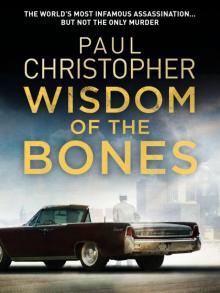 Wisdom of the Bones
Wisdom of the Bones The House of Special Purpose
The House of Special Purpose The Second Assassin
The Second Assassin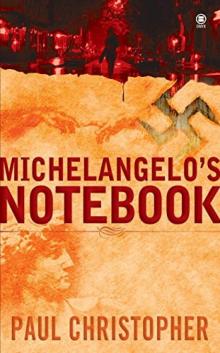 Michelangelo's Notebook
Michelangelo's Notebook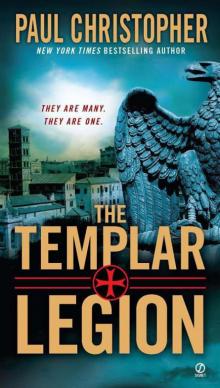 Templar Legion
Templar Legion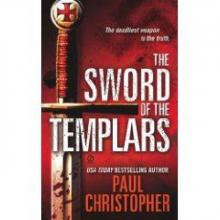 The Sword of the Templars t-1
The Sword of the Templars t-1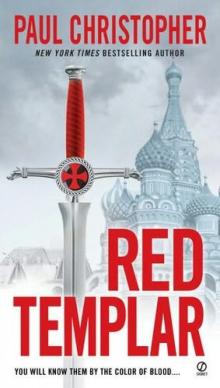 Red Templar
Red Templar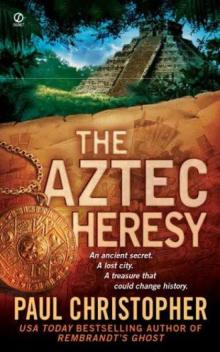 The Aztec Heresy
The Aztec Heresy The Templar Legion
The Templar Legion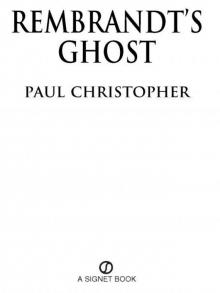 Rembrandt's Ghost
Rembrandt's Ghost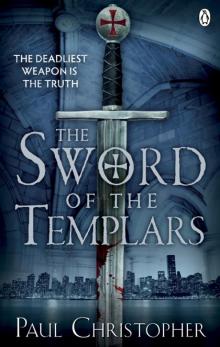 Sword of the Templars
Sword of the Templars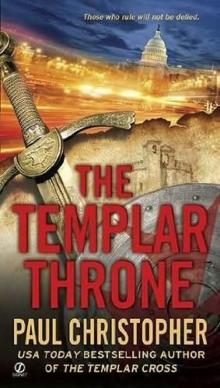 The Templar throne t-3
The Templar throne t-3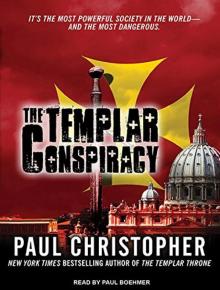 The Templar Conspiracy
The Templar Conspiracy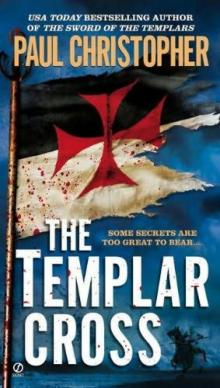 The Templar Cross t-2
The Templar Cross t-2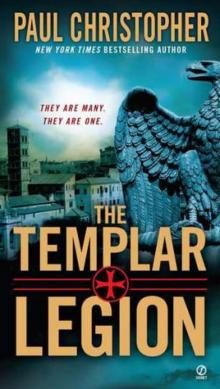 The Templar Legion t-5
The Templar Legion t-5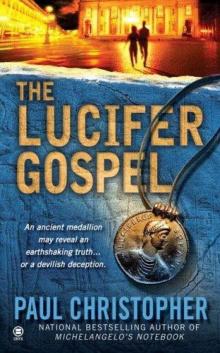 The Lucifer Gospel
The Lucifer Gospel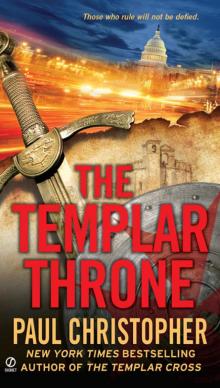 Templar Throne
Templar Throne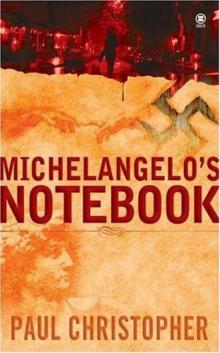 Michelangelo_s Notebook fr-1
Michelangelo_s Notebook fr-1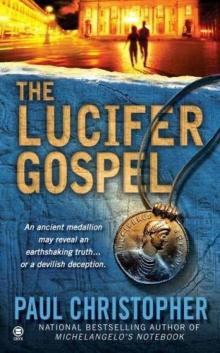 The Lucifer Gospel fr-2
The Lucifer Gospel fr-2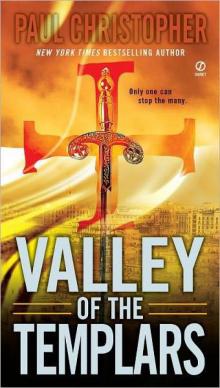 Valley of the Templars ts-7
Valley of the Templars ts-7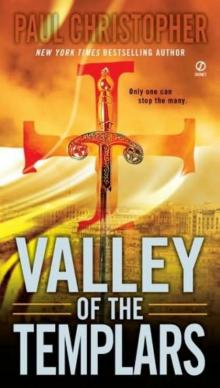 Valley of the Templars
Valley of the Templars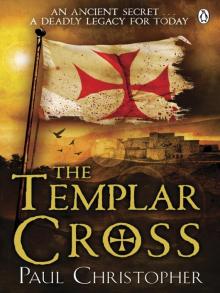 Templar Cross
Templar Cross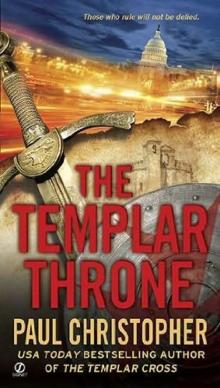 The Templar Throne
The Templar Throne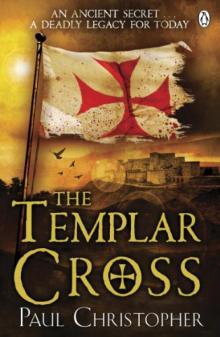 The Templar Cross
The Templar Cross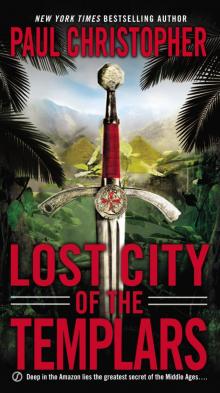 Lost City of the Templars
Lost City of the Templars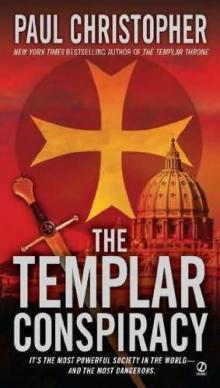 The Templar conspiracy t-4
The Templar conspiracy t-4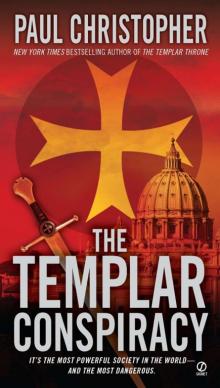 Templar Conspiracy
Templar Conspiracy